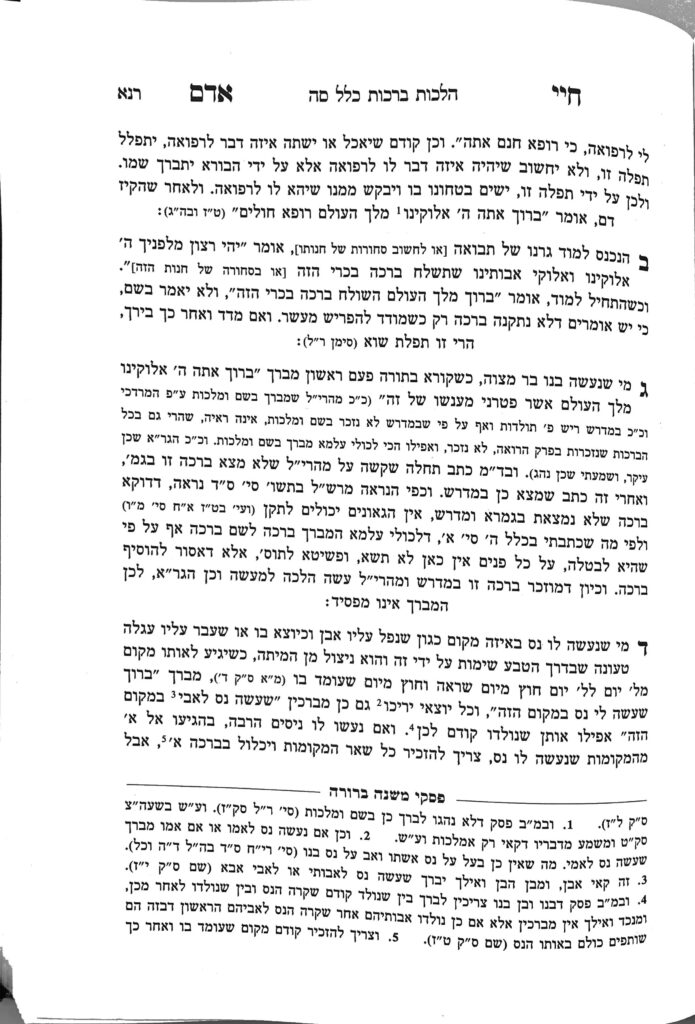We are continuing in siman 3, discussing the bracha of baruch shepitrani. We expanded the discussion to learn about whether brachos which are not mentioned in the Gemara can be instituted later on by the Geonim and Rishonim. The Chayei Adam concluded that a person is not obligated in this bracha, but may recite the bracha with Hashem’s name if they wish. Today, we will discuss some of the procedural details of the bracha.
The appropriate time for a father to recite the bracha of baruch shepitrani is when his son receives his first aliyah, because it is the first public expression of the son becoming a gadol. At this time, when the son is expressing his gadol status through a mitzvah which he would not otherwise be able to do as a koton, the father’s bracha regarding his son’s new status is most appropriate.
If the father did not recite the bracha at the time of his son’s first aliyah, he may recite it later. The bracha preferably should be recited in the presence of 10 people, but is not meakeiv.
Next, we will discuss whether one recites this bracha on their daughter becoming a bas mitzvah. The question will depend on the meaning of the bracha. There are two explanations as to the meaning of this bracha.
The first is that the father has a chinuch responsibility to their child which ends with the child becoming a bar mitzvah. In the same way that the child is now a gadol for mitzvos, he is also responsible for his own chinuch.
A second explanation, brought by the Levush, is that when an adult does an aveirah, sometimes Hashem brings the punishment through the adult’s minor children. Once Hashem punishes a child, a parent may subsequently be punished themselves due to having brought pain upon their child. Once a child reaches bar mitzvah, a child can no longer be punished on account of a parent’s aveiros. Thus, the father can no longer be punished for bringing punishment upon his children. According to this explanation, it is for these punishments that the father recites the bracha of baruch shepitrani.
Be’ezras Hashem, tomorrow we will explain how these explanations apply to reciting the bracha on a daughter becoming a bas mitzvah.
Summary
- The most appropriate time to recite the bracha of baruch shepitrani is when the son receives his first aliyah. However, if the father did not recite the bracha at that time, he may recite it later.
- The bracha should be recited in front of 10 people, but it is not meakeiv.



